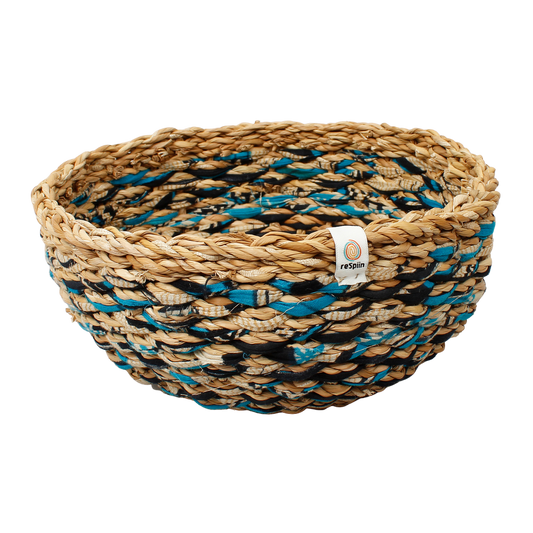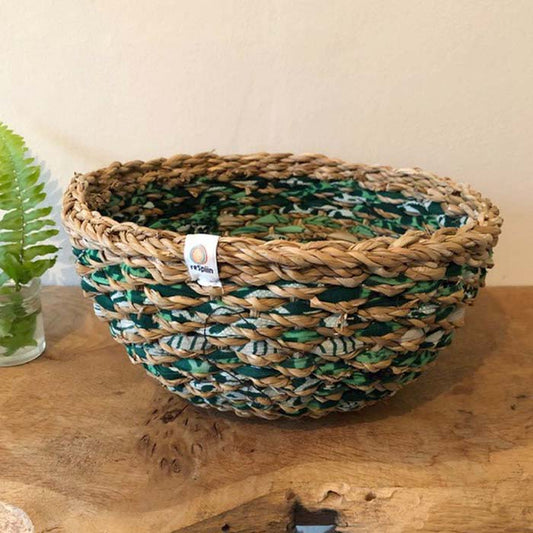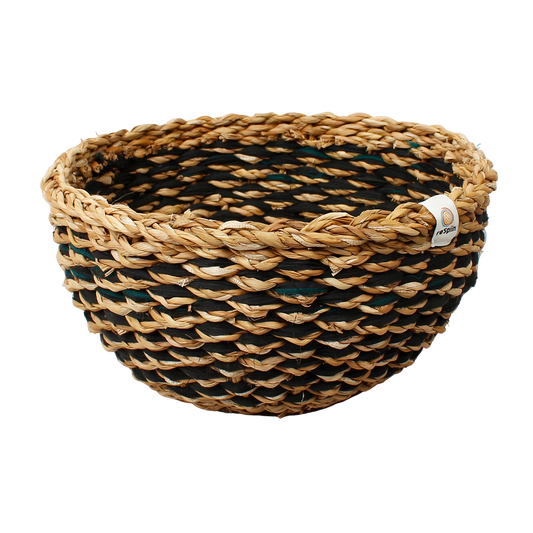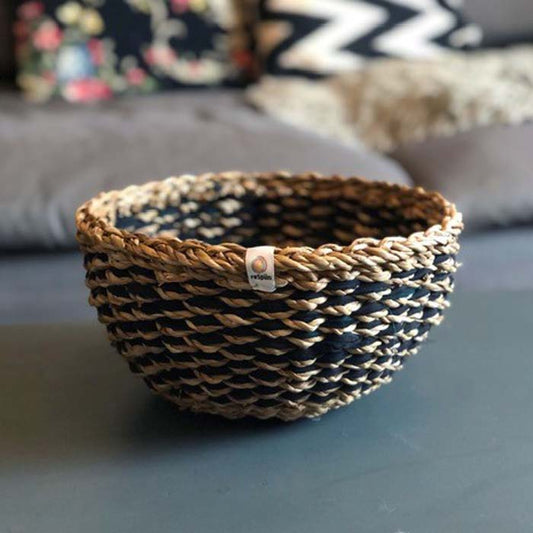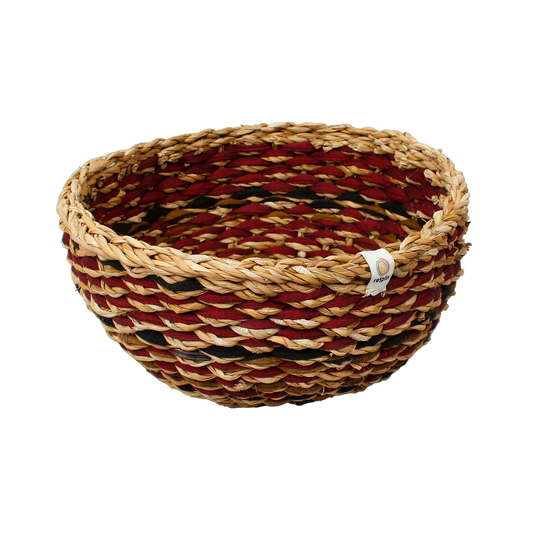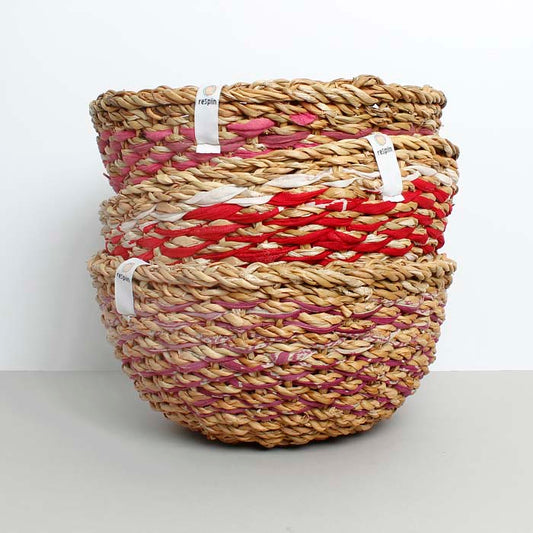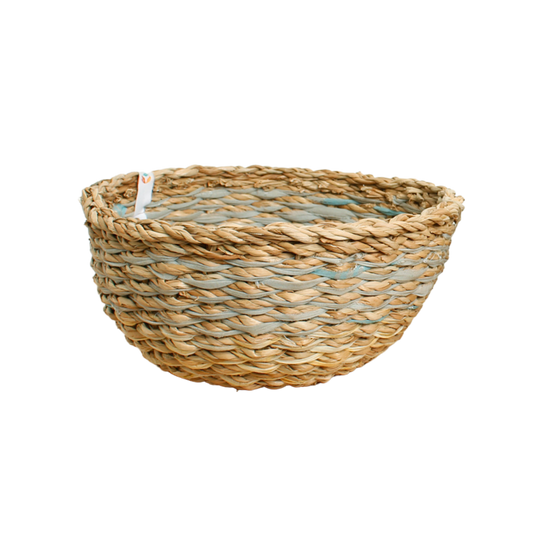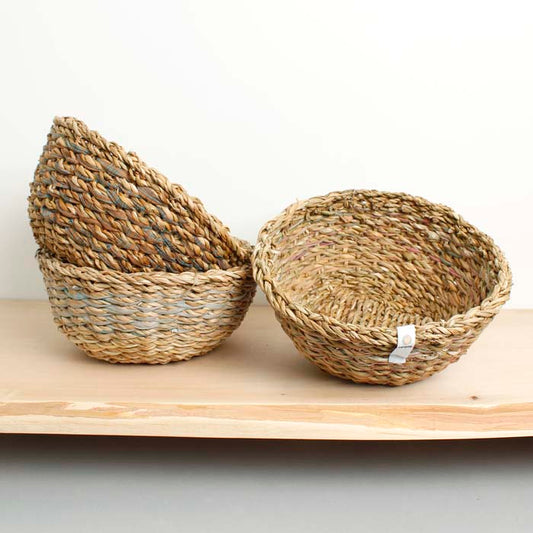
Upcycled Saris
We breathe life into old saris, by weaving them together with sustainable seagrass to make a beautiful, one of a kind basket.
How are Saris Upcycled?
Old saris are sold by households to pedlars, who sell the saris onto companies who usually recycle them. While recycling is great, the process does require a lot of energy.
So instead, we reuse the saris. We don't process them at all - they are simply cleaned and sorted, before we use them to create home accessories. Because each sari has a different colour and pattern, each product in our Sari Collection is genuinely unique.



Why is Upcycling Sustainable?
-
Reduces Textile Waste
Discarded clothing ending up in landfill is a major global problem. Reusing textiles reduces greenhouse gases and saves landfill space.
-
Extends the Lifecycle
By reusing the saris to create items with a long lifetime, such as our Sari + Seagrass Bowls, it delays and reduces the quantity of textiles that go to waste.
-
Minimum Impact on the Planet
Unlike recycling, there is no industrial process involved for upcycling. The saris are cleaned and reused as they are, so it requires much less energy.
Shop our Upcycled Sari Collection
-
Upcycled Sari + Braided Seagrass Bowl - OCEAN
Regular price £12.50Regular priceUnit price / per -
Upcycled Sari + Braided Seagrass Bowl - GREY
Regular price £12.50Regular priceUnit price / per -
Upcycled Sari + Braided Seagrass Bowl - FIRE
Regular price £12.50Regular priceUnit price / per -
Upcycled Sari + Braided Seagrass Bowl - NATURAL
Regular price £12.50Regular priceUnit price / per
More materials
-
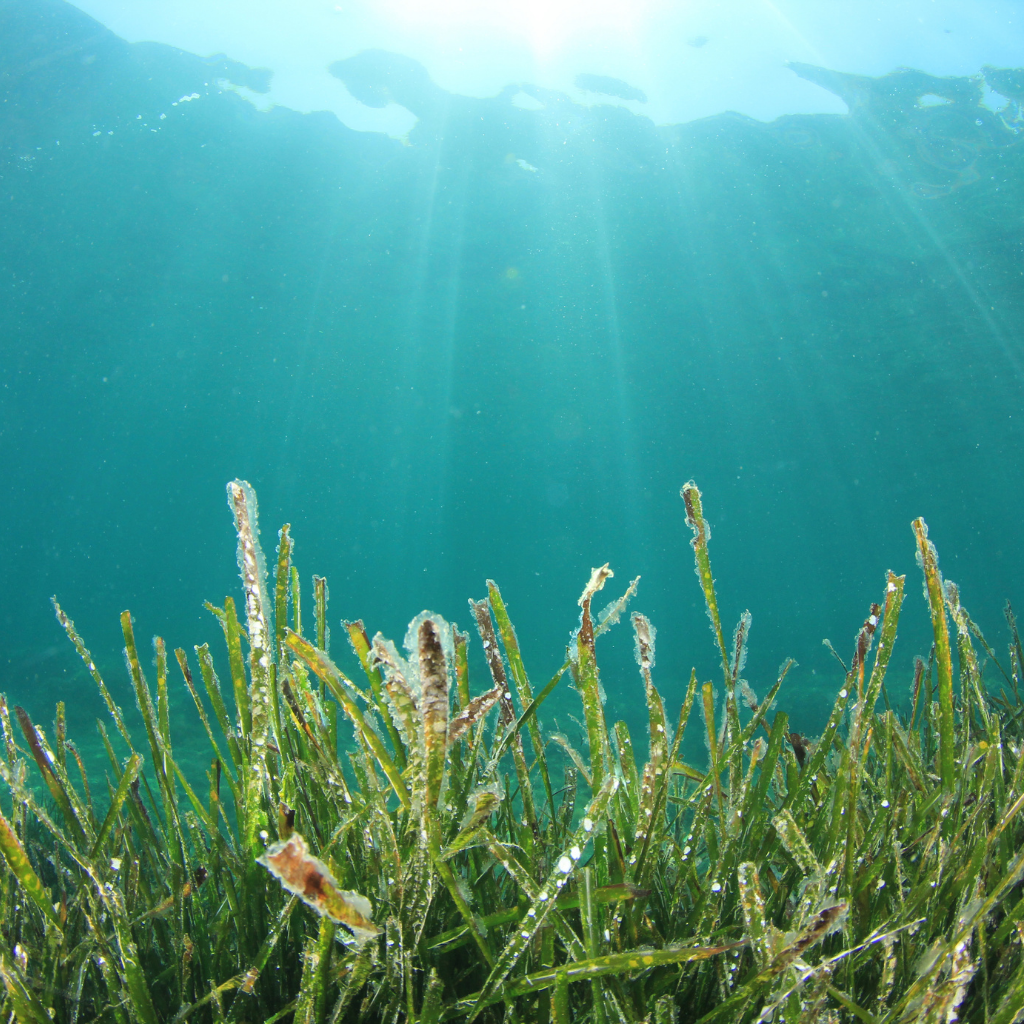
Seagrass
Seagrasses grow very quickly in shallow saltwater along coastlines and rivers. Once mature the grasses are cut by hand and dried in the sun, then hand twisted and woven. The dried seagrass is durable and moisture-resistant. Learn more
-
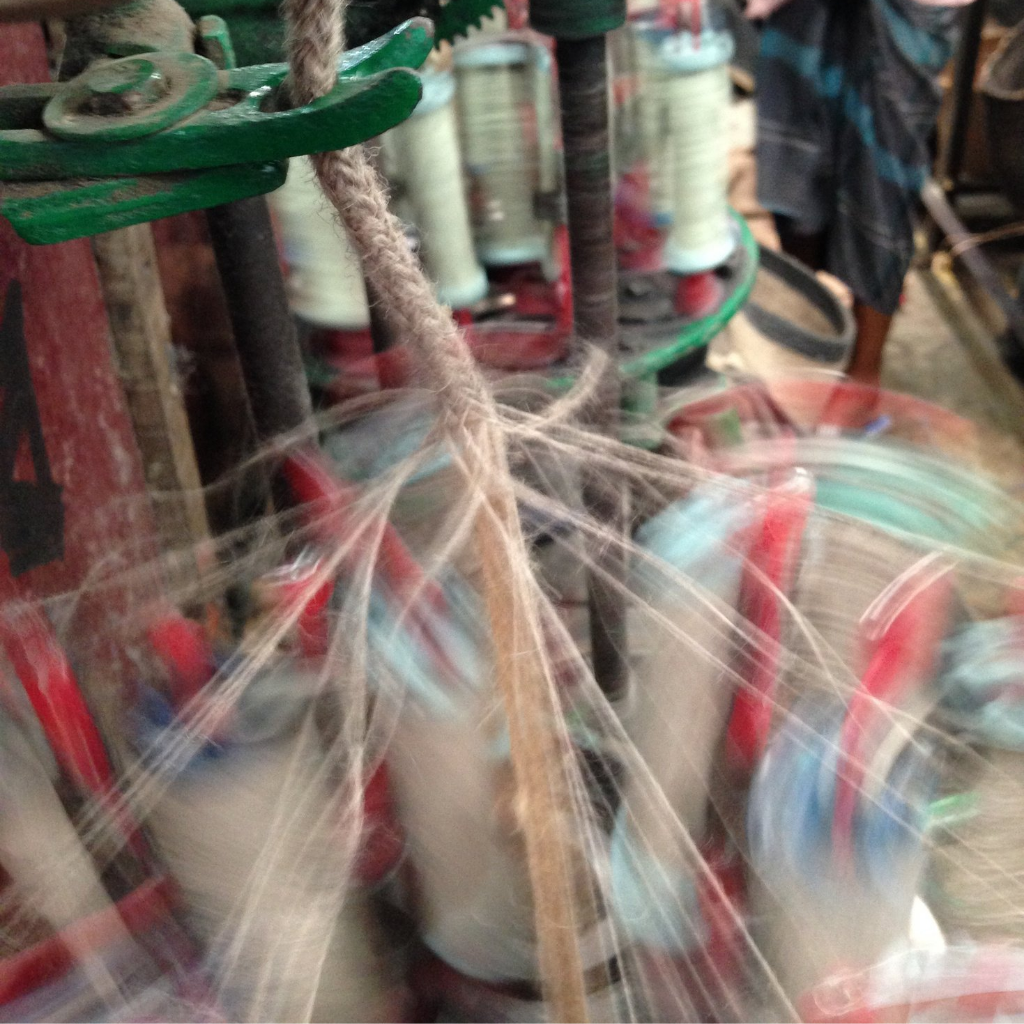
Jute
Jute plants are easy to grow with little need for fertilisers or pesticides and have a high yield per acre. They absorb more CO2 than trees so are good for the air, and are enriching for the soil. Learn more
-
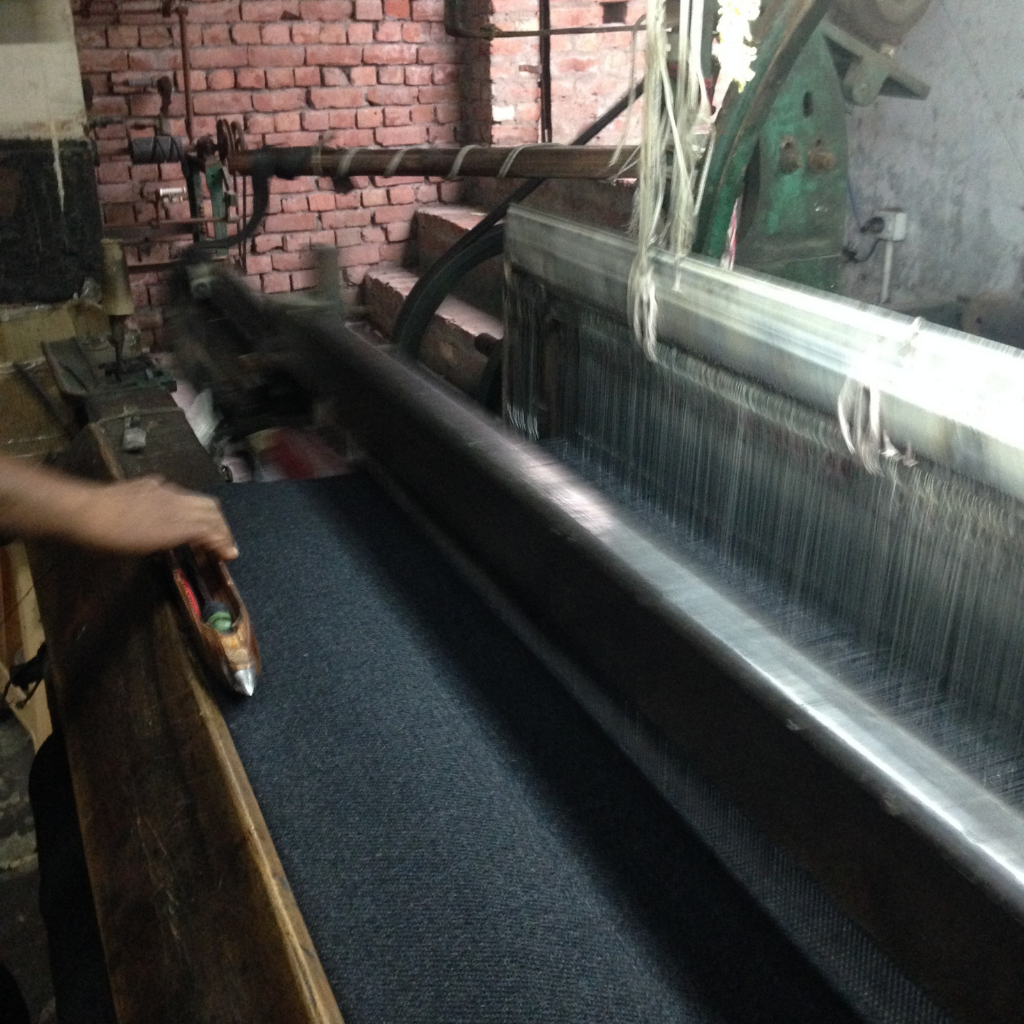
Recycled Wool
Used wool fabrics are collected in recycling banks around the world. In India they are sorted into colour, broken down into fibres, spun into yarn and then woven into fabric. Learn more

